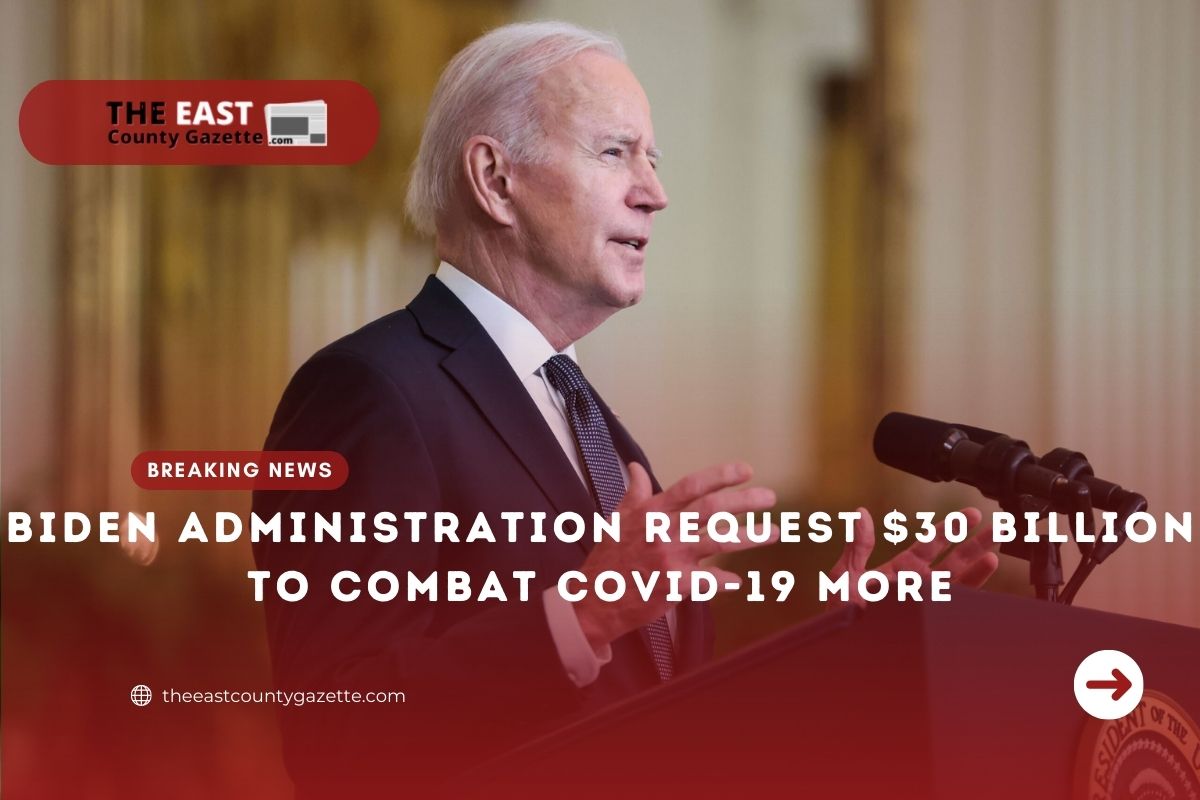Biden’s administration aims to gauge possible support from Congress for $30 billion in new federal funding to aid in the ongoing eradication of the COVID-19 virus and develop vaccines to combat future infections and diseases.
According to CBSNews, Washington has been discussing the need for additional aid in recent weeks, and White House spokesman Jen Psaki confirmed the administration is looking for more money to address future needs.
“While we continue to have sufficient funds to respond to the current Omicron surge, in the coming weeks, our goal has always been to ensure that we are well-prepared to stay ahead of the virus,” Psaki said at Tuesday’s White House briefing.
Congress has also set aside ample amounts over trillions of dollars from allocating record-breaking amounts of money to bolster the American economy and beleaguered state and local governments suffering from a lack of tax revenue caused by the COVID downturn.
Although the political appetite for more federal funding is unknown for some states and cities that have lifted COVID-related restrictions and the economy is growing at a record pace.
Approximately $18 billion are requested for COVID-19 treatments and vaccines, $5 billion for testing efforts, and $3 billion to reimburse providers for testing and treating uninsured individuals. Moreso, the administration wants $4 billion for vaccine research and development to prepare for future variants.
People familiar with the meeting informed CBS News that the request for new possible federal spending came up in a meeting between administration officials and congressional staffers working on the federal spending legislation.
In a statement to CBS News, a spokesperson for the Department of Health and Human Services confirmed that the discussion took place on Tuesday with the congressional staff and lawmakers about funding, “as well as the need for additional resources to support securing more life-saving treatments and vaccines, sustaining testing capacity, and investing in research and development of next-generation vaccines. These resources would help us continue expanding the tools the country needs to stay ahead of the virus and help us move toward the time when COVID-19 will not disrupt our daily lives.”
There is already resistance among lawmakers who control fund appropriations process to adding more COVID relief funding to the yearlong spending package.
“I’m not eager to add anything,” said Senate Appropriations Committee Chairman Patrick Leahy of Vermont.
“It has taken several months of negotiation to get where we are.”
Despite Leahy’s willingness to consider proposals from the administration, he believes it ought to be a separate bill.
Meanwhile, Senate Majority Leader Chuck Schumer acknowledged that lawmakers needed more pandemic-related assistance earlier in the day, but said the administration had not submitted a proposal.
“They haven’t sent us a relief package yet, but obviously we’re going to have to do something,” Schmidt told CBS News on Tuesday.
The additional funding request comes as Leahy and other House and Senate negotiators hope to conclude negotiations by March 11 in order to fund the government until September 30.
Bipartisan support is needed for the agreement, which would be the first of the Biden presidency and the unified Democratic Congress.
As polls continue to indicate that the Democrats will likely lose control of at least one congressional chamber, Democrats are more anxious to complete a spending package before the midterm election season begins.
A source familiar with the ongoing negotiations said GOP negotiators may be more open to compromise if the White House request includes new, unanticipated needs.
GOP negotiators have argued, however, that some federal money has not yet been spent by states, cities and school districts as a result of relief packages passed last year and during the Trump administration.
Regardless of all, a record-high inflation rate is a concern that is shared by both parties.

